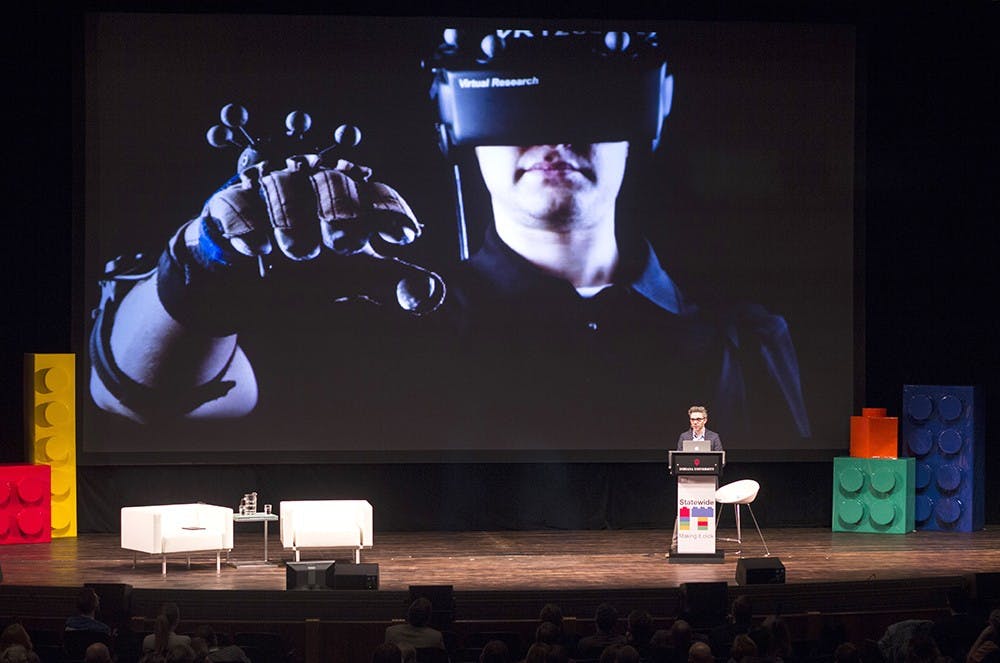Surrounded by life-size Legos, New York Times technology columnist Nick Bilton took the stage Tuesday at UITS’ Statewide IT ?conference.
The Media School partnered with Matrix Integration to bring Bilton as part of the IU IT team’s annual tech seminar. This year, the theme was “Making it Click” and focused on the future of digital education and the effect on students.
Bilton is the lead blogger for New York Times blog Bits as well as a technology and business columnist and author. Bilton is known for leading the crusade to allow mobile devices on airplanes.
Bilton’s columns resulted in the Federal Aviation Administration overturning its ban on electronic devices during takeoff and landing.
Bilton’s keynote address discussed technology trends and how they will shape universities across the country.
He opened his lecture with an overview of the past, present and the future of technology. He noted how rapidly technology has changed and become accessible in the past 50 years.
Bilton, citing Pew Research, said there are six billion mobile users worldwide. Here in the United States, 58 percent of the population has smartphones.
With technology reaching such a vast audience, Bilton previewed what type of technology we will be seeing in the future.
Bilton discussed flexible displays, which companies such as Samsung and LG have already begun creating. He said consumers will see this in the form of phones, televisions and eventually as digital wallpaper.
Bilton also talked about the future of education through technology with holographic book displays and wearable computers.
“In the past we walked to our computers, now we carry our computers, and in the future we’ll wear them,” he said.
Specifically, Bilton addressed Google Glass and the privacy issues it presents. The main concern with these devices is they can take photos hands-free and discreetly, he said. Bilton compared sitting across from Google Glass users to being in front of the paparazzi.
“What’s interesting is we don’t really have much of a choice,” Bilton said. “This is going to happen whether we want it to or not.”
Bilton predicts these will be used to record data for preventive health care.
Some companies, such as HQ Inc., have developed pills that can be ingested to collect body temperature data as they travel through the user.
This is currently being used with astronauts to make sure they don’t overheat while in space, Bilton said. Other companies have developed ingestibles to study athletes and soldiers.
These pills could also be used as security, Bilton said. Smartphones would be able to detect the minuscule sensors and transmitters within the pill. This means your body becomes your phone password, Bilton said.
“Am I freaking everyone out?” he said. “Do you all want to run out of the room? Go live in a cave somewhere?”
What this means for students and universities is an entirely new way of teaching and learning, Bilton said.
“It’s just going to be a matter of years before your students walk in with wearable computing,” Bilton said. “Then they’ll walk in with biomedical commuting, and then they’ll walk in where they are the computers.”






